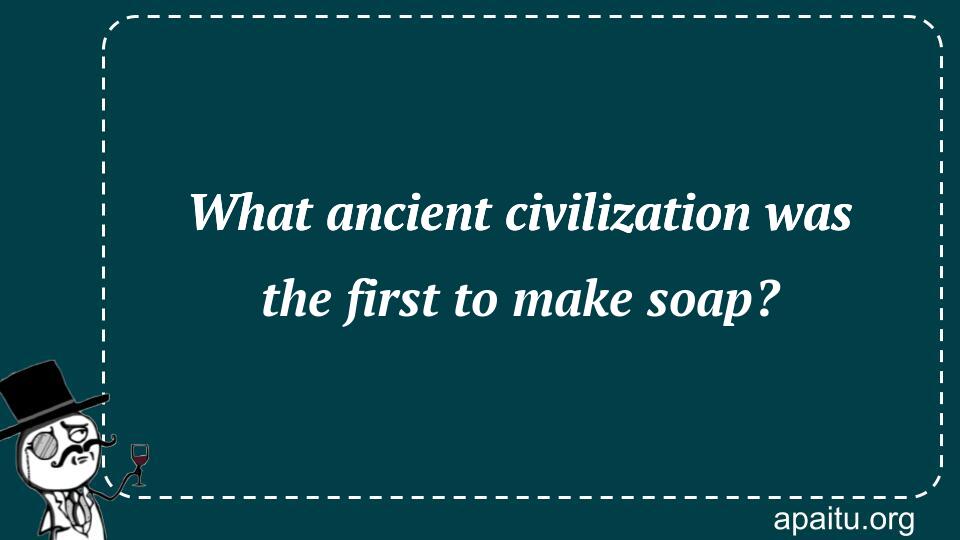Question
Here is the question : WHAT ANCIENT CIVILIZATION WAS THE FIRST TO MAKE SOAP?
Option
Here is the option for the question :
- Egyptians
- Greeks
- Babylonians
- Chinese
The Answer:
And, the answer for the the question is :
Explanation:
In Babylonia, which is located in what is now southern Iraq, archaeologists have discovered clay cylinders that contain soap-like components formed from animal fats and ashes that date back to 2800 BCE. This is the earliest evidence of soapmaking that has been unearthed. In addition to washing their bodies, clothing, and other goods with soap, some ancient societies also utilised it to clean their homes. This applies to the ancient Egyptians as well, who mixed animal and vegetable oils with alkaline salts in their cosmetics.

Soap is a ubiquitous household item that we often take for granted, but its history is actually quite fascinating. The use of soap dates back to ancient times, and the Babylonians are credited with being the first civilization to make soap.
Babylonian soap was made by mixing fats, such as tallow or animal fat, with ash from wood or plants. The mixture was then boiled in water, and the resulting product was a crude form of soap. This soap was primarily used for cleaning textiles and wool, and it was also used for medicinal purposes.
The ancient Egyptians also used soap for cleaning purposes, but their soap was made from a different recipe. Egyptian soap was made from a mixture of vegetable oils and animal fats, along with alkaline salts such as natron or potash. This mixture was then heated and boiled for several hours, and the resulting product was a soft, oily soap.
Soap making continued to evolve over time, with the Greeks and Romans both making significant contributions to the craft. The Greeks used a mixture of olive oil, water, and lye to make their soap, while the Romans used a similar recipe but added fragrances and colors to make their soap more luxurious.
During the Middle Ages, soap making became a popular trade in Europe, and soap makers began to experiment with different oils and fats to create soap that was more effective and pleasant-smelling. In the 19th century, the invention of synthetic detergents led to the decline of traditional soap making, but soap still remains a common household item today.
the Babylonians are credited with being the first civilization to make soap, using a mixture of fats and ash to create a crude form of soap. Soap making continued to evolve over time, with the Greeks, Romans, and Europeans all making significant contributions to the craft. Today, soap is still a common household item, with a wide range of varieties and fragrances available to suit every taste and need.